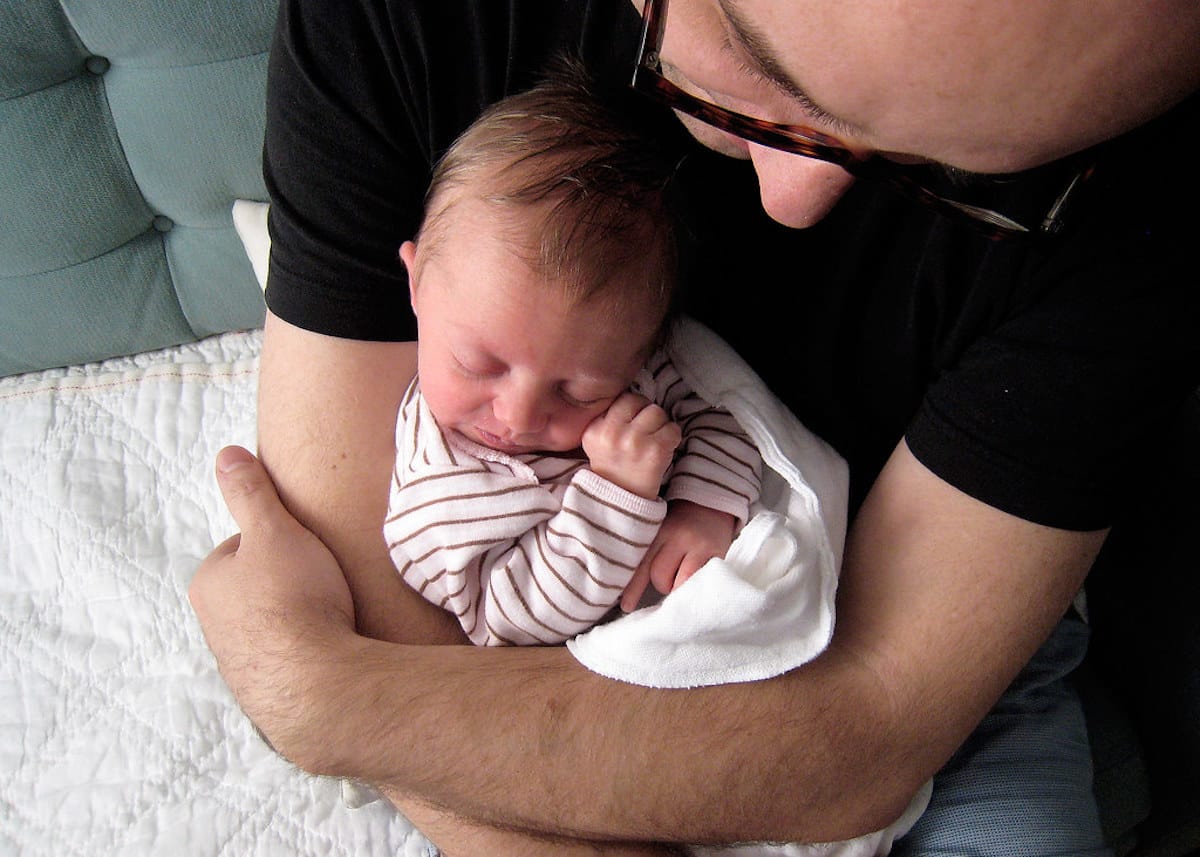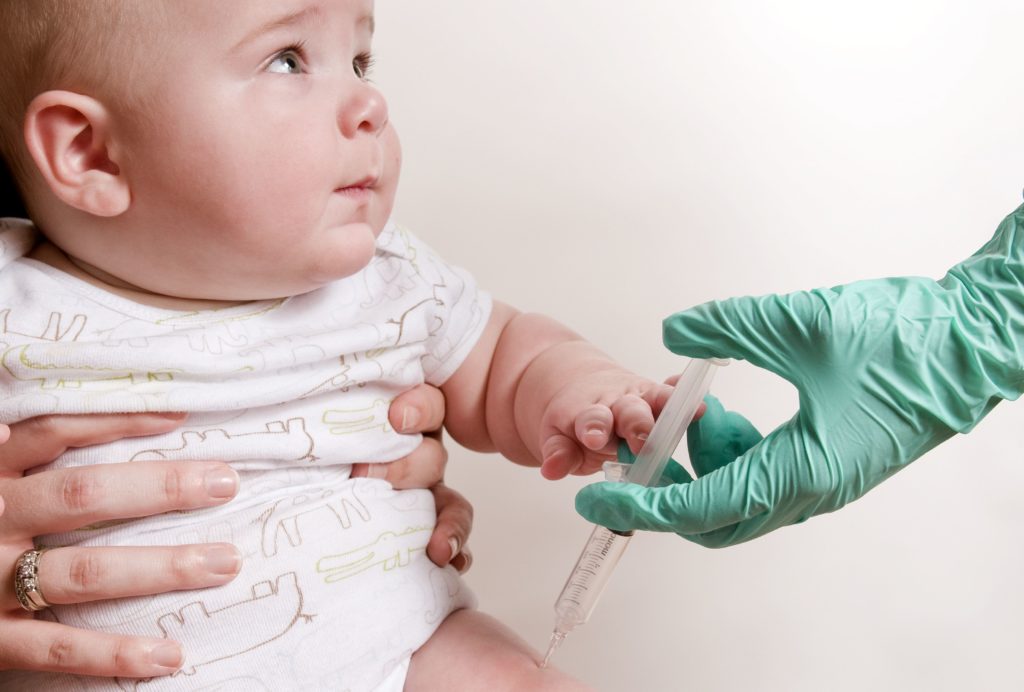
Last Updated on August 26, 2021
For new parents, nothing is quite as stressful as a crying baby. Whether it’s harping on your sleep or giving you worry for their well-being, you want to do what you can to ease their minds.
When it comes to diaper changes there are many things you can do to help your baby through the process! For a baby, soiled diapers are the opposite of fun and it’s important to get to them quickly. If they continue to cry during their diaper change, we understand why it could be puzzling.
There can be many reasons for their wailing and distress. With those reasons come tips to help you and your child cope. Even though you might be worried there might be a medical reason, do not despair! It’s more likely one of the more common reasons below.
Contents
Babies are navigating a new world and some things are going to affect them passionately. Don’t worry, most of these issues can be easily resolved. It’s a big world and just try to remind yourself that they’re doing the best they can! Just review the list down below for all the possible reasons your child could be suddenly crying hysterically during their diaper changes.

Of course, you can’t totally rule out any medical concerns. Some of these problems are only noticeable once your diapering newborn is flat on their back. Considering certain conditions are triggered in certain positions. Below is a description of a couple of medical conditions that affect the number of babies every year.
Young babies that have spina bifida usually means that they have a congenital disability that causes their backbones to develop abnormally. This condition can cause spine and nerve damage, causing significant discomfort when babies are placed on their back.
Spina bifida is usually diagnosed at birth or before birth, in most circumstances. However, anything can be missed. If you think your infant is suffering from a form of spina bifida, have your doctor order an MRI or CT scan.
It’s rough that before they’ve gotten their start in the world their stomach is already attacking them. Usually, with acid reflux in babies, they will highly dislike laying down on their backs. If your baby throws up, spits up, or cries a lot during or after feedings, they might have acid reflux or GERD (gastroesophageal reflux disease). The discomfort is caused by the contents of the stomach coming back into their esophagus, leading to turbulent pain.
Establish trust before you pick them up and place them on the table. If the idea of someone much bigger than you, swooping you up without a warning, sounds uncomfortable to you then you must wonder how they feel. Just vocally make yourself known or visually and remain a sweet and calm presence. Verbally tell them what you’re about to do every time. That way, they’ll know what to expect.
There may be the chance that your baby just isn’t used to being put on their back like this every day, leading to their distress and distrust. Practice the motion by laying them throughout the day to play with you. The continuous movement will slowly be ingrained into them as normal and safe. Plus, it will make it a positive experience! Making them become more open and trusting.
By this, we also mean, remain organized. Maybe every time you go and change them it becomes a lengthy process because all the tools are scattered. Having your baby waiting and lying down for longer has made the diaper changing process a harrowing one. Plus you run the risk of them falling off the table while you run about getting everything you need. Don’t leave your baby alone on elevated surfaces. Not to worry, just gather up what you need and keep it in a designated spot!
Toys are nice, bright, shiny, and most importantly, fun to play with! Give your baby some toys or a safe, but a random item that they seem to take a shine to. Use your facial expressions and voice if you have to! In either case, distraction could really help tide their attitude long enough to get them all clean again.
Another way to help their distress is by changing them right there on the floor. If they’re enjoying themselves and running about, you can just quickly change them rather than go through transporting them to the table. Plus, they’ll be safe from the risk of falling if they end up squirming about. There’s little risk, but great reward with this strategy.
Related Reading: How to Put Diaper on a Baby to Prevent Leakage?
If they are completely in the zone and you know disrupting them will lead to their upset, then you can try to master the art of a stand-up diaper change. This all to ensure that their flow isn’t completely off the rails. Poops may be a little trickier to conquer, but if it leads to less screaming then maybe it’s worth a shot.
Cold can be surprising and not everyone will take to surprises. Change your child in the warmest part of your home or nursery. Try to use more room temp or warmer wipes so as to not alarm your baby every time their tush gets wiped. A nice, warm swaddle could also do some good. It’s an awkward feeling, being naked and suddenly cold.
It seems anxiety will be an emotion felt for all ages, no matter what. If you’re feeling rushed and stressed, your baby could feed off that energy and give it right back. Thus, making them feel anxious about the process too. Just stop, take a deep breath and reconnect with each other. If you slow it down you’ll be able to calm each other in the meantime.
Use your beautiful soothing voice to guide them through the diaper change. Quite alike to forewarning them, except you speak with them the entire time. Keeping your voice light and cheery will help alert them whilst keeping them positive. Therefore it becomes a positive experience. Create that anticipation and hope and then keep them distracted throughout the rest of the process.
Remember when we said that your babies feed off your energy? Don’t forget to show off some good energy by engaging with them. Make a silly face and put on a goofy voice, don’t be afraid to be vulnerable with them. It’s better to hear them laugh rather than to hear them cry. If they have a joyful experience, it will make all the difference.
Babies sometimes will have favorite songs that automatically cheer them up. Utilize this and sing to them if you can! If you’re worried your singing voice will scare them more than anything, don’t fret. Children just want to hear their mom or dad reassure them.
It’s common in humans to want what we don’t have. The same goes for children! Give them something to hold that they usually don’t like a lotion bottle or hairbrush. There will be items that look completely interesting to them and they’ll be distracted by their curiosity. Just be sure to hand them something safe, of course, but other than that there are not many limitations you can place.
If your baby is more of a looky Lou, then try hanging a mobile up above the diaper changing station. This will give them something fun and playful to look at while they get all cleaned up! Now they’ll be distracted rather than focused on what you’re up to.
If and anytime they can get through a diaper change without crying, praise them! Every child wants to make their parents proud, but the parents have to make it known when they do.
Use an excited voice and thank them for doing a great job! Encouraging your baby through the process will only bolster their confidence and help steer them away from their uncomfortably.
Also Read: How to Prevent Overnight Diaper Leaks?
As you can see there are many ways to soothe a baby who hates getting their diaper changed. Besides the worrying, but rare medical reasons, the common reasons babies cry during this process are easy to deal with. The bottom line is keeping all this a positive experience for your baby. If they continue to associate getting their diaper change with a negative experience then that’s the only reaction you’ll end up eliciting.
Also Read:
You must be logged in to post a comment.
Join our newsletter for the latest updates!
ddd
hhh